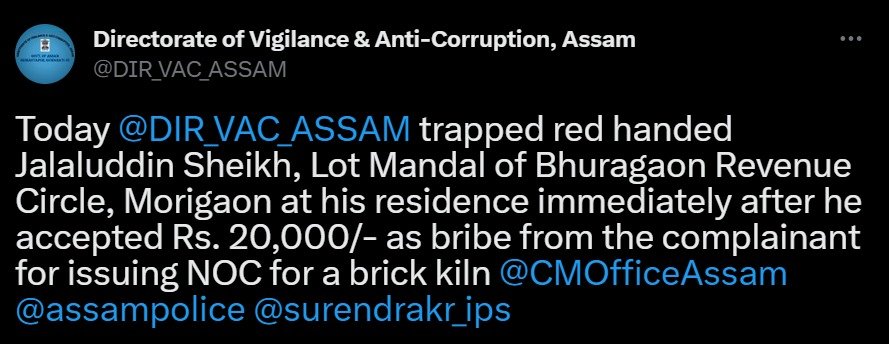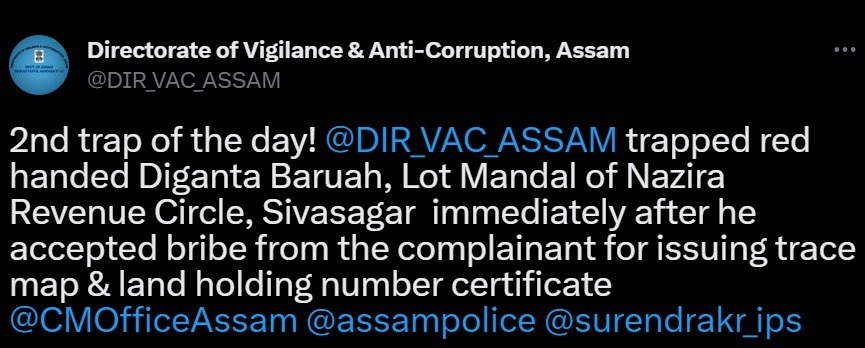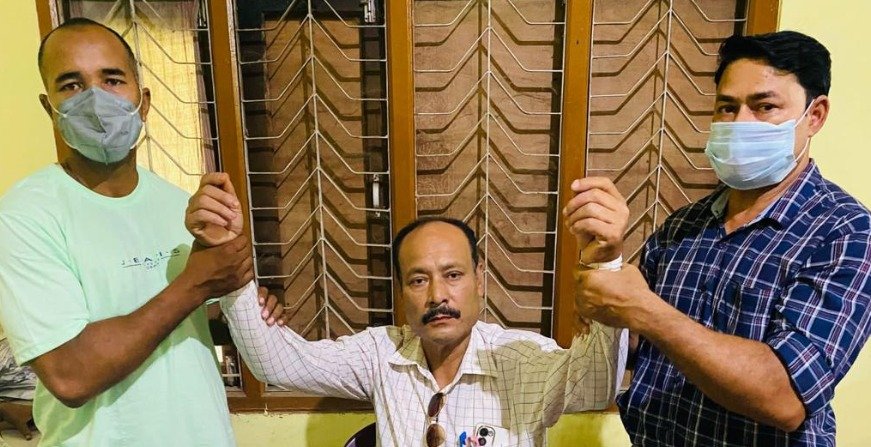Guwahati, June 14: In a significant development, the Directorate of Vigilance and Anti-Corruption (VAC) of Assam successfully apprehended two revenue officials today for accepting bribes in separate cases.
The first incident involved the capture of Jalaluddin Sheikh, Lot Mandal of Bhuragaon Revenue Circle, Morigaon. Acting on a complaint, VAC officials raided Sheikh’s residence and caught him red-handed while accepting a bribe of Rs. 20,000.
The bribe was reportedly given to expedite the issuance of a No Objection Certificate (NOC) for a brick kiln. This illegal act by Sheikh highlights the pervasive corruption that has plagued the revenue sector.

Simultaneously, in another part of the state, VAC officials apprehended Diganta Baruah, Lot Mandal of Nazira Revenue Circle, Sivasagar. Baruah was caught accepting a bribe in exchange for issuing a trace map and a land holding number certificate.
This incident further reinforces the need for rigorous anti-corruption measures to ensure transparent and accountable governance.

Over this arrest the Director of VAC expressed satisfaction with the outcomes and commended the team for their efficient and prompt action.
He reiterated the commitment of the organization to fight corruption at all levels and restore public trust in the state administration.
These recent arrests come in the wake of the Assam government’s intensified efforts to combat corruption.
Chief Minister’s Office, the Assam Police, and other law enforcement agencies have been working closely with VAC to ensure a corruption-free environment and uphold the principles of good governance.
Public sentiment regarding these developments is overwhelmingly positive, with citizens expressing their support for the strong stance taken by the authorities. They believe that such measures will act as a deterrent and lead to a more transparent and accountable governance system.
The successful operations carried out by the Directorate of Vigilance and Anti-Corruption reinforce the government’s commitment to rooting out corruption from the state’s administrative machinery.
These efforts play a crucial role in establishing a fair and just society where public servants uphold their duty to serve the citizens with integrity and without succumbing to corruption.







